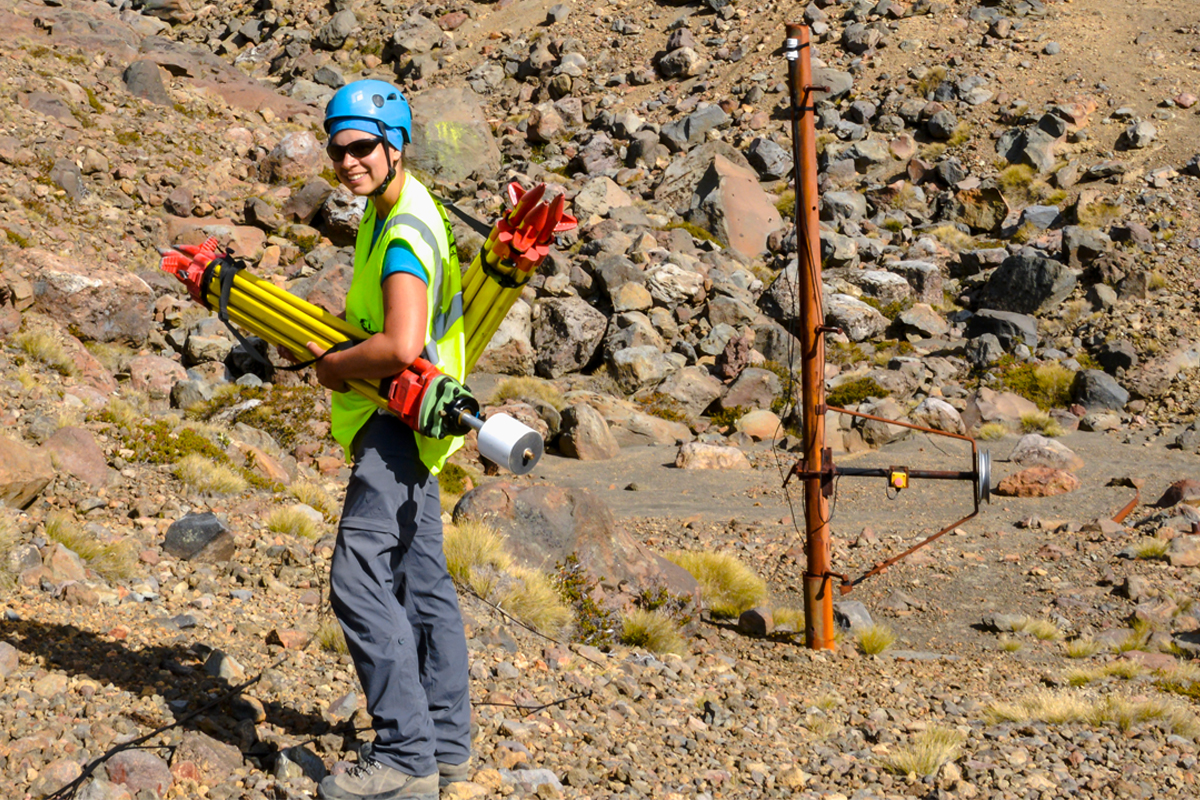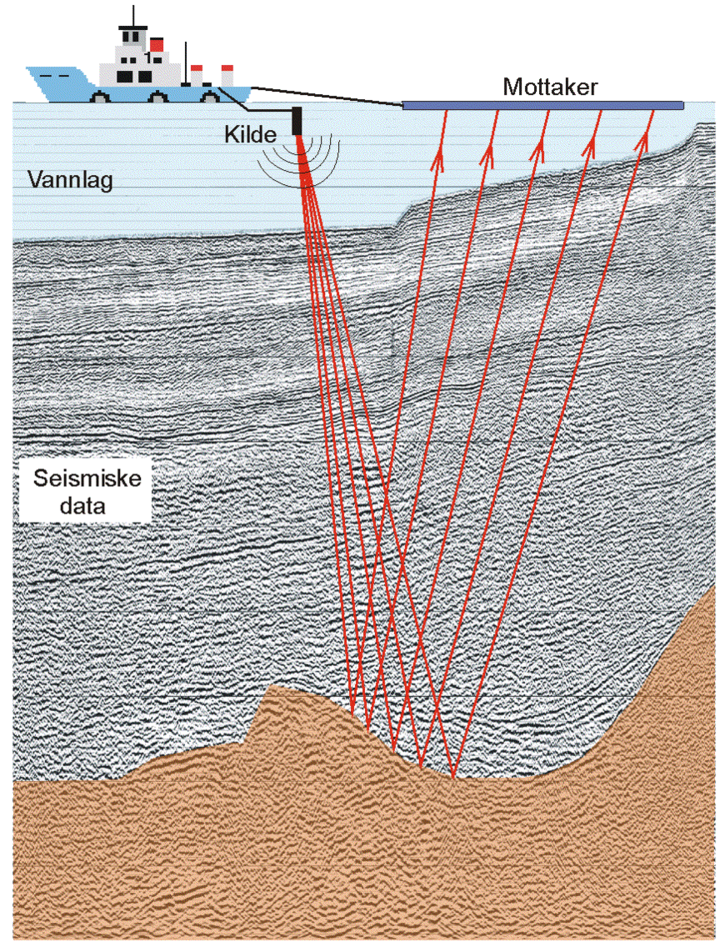All Categories
Featured
Table of Contents
Geophysicist in Medina Oz 2022

(PREM)., and the borders in between layers of the mantle are constant with phase shifts.

Schematic of Earth's magnetosphere. Circulations from left to.
Inside the magnetosphere, there are reasonably thick areas of solar wind particles called the Van Allen radiation belts. Geophysical measurements are generally at a specific time and place.
Geophysicist Job Description in Beckenham Oz 2022
A three-dimensional position is calculated utilizing messages from four or more visible satellites and described the 1980 Geodetic Recommendation System. An option, optical astronomy, combines astronomical coordinates and the local gravity vector to get geodetic coordinates. This approach just provides the position in two collaborates and is harder to use than GPS.
Relative positions of two or more points can be determined utilizing very-long-baseline interferometry. Gravity measurements entered into geodesy because they were required to associated measurements at the surface area of the Earth to the reference coordinate system. Gravity measurements on land can be used gravimeters released either on the surface or in helicopter flyovers.
Water level can also be measured by satellites utilizing radar altimetry, adding to a more accurate geoid. In 2002, NASA released the Gravity Recovery and Environment Experiment (GRACE), wherein 2 twin satellites map variations in Earth's gravity field by making measurements of the distance between the 2 satellites utilizing GPS and a microwave ranging system. Satellites in space have actually made it possible to collect data from not just the visible light region, but in other locations of the electro-magnetic spectrum. The worlds can be defined by their force fields: gravity and their magnetic fields, which are studied through geophysics and space physics. Measuring the modifications in velocity experienced by spacecraft as they orbit has actually permitted great information of the gravity fields of the worlds to be mapped.
5 Surface Geophysics in Mindarie WA 2022

Given that geophysics is worried with the shape of the Earth, and by extension the mapping of functions around and in the planet, geophysical measurements consist of high accuracy GPS measurements. These measurements are processed to increase their accuracy through differential GPS processing. As soon as the geophysical measurements have been processed and inverted, the interpreted results are plotted using GIS.
Many geophysics companies have actually designed in-house geophysics programs that pre-date Arc, GIS and Geo, Soft in order to satisfy the visualization requirements of a geophysical dataset. Exploration geophysics is used geophysics that often utilizes remote sensing platforms such as; satellites, aircraft, ships, boats, rovers, drones, borehole noticing devices, and seismic receivers.
Aeromagnetic data (aircraft gathered magnetic information) gathered utilizing traditional fixed-wing airplane platforms must be remedied for electro-magnetic eddy currents that are created as the aircraft moves through Earth's magnetic field. There are likewise corrections associated with modifications in determined prospective field intensity as the Earth turns, as the Earth orbits the Sun, and as the moon orbits the Earth.
Geophysicist Job Description: Salary, Duties, & More in Bickley Western Australia 2020
Signal processing includes the correction of time-series data for undesirable sound or errors introduced by the measurement platform, such as airplane vibrations in gravity information. It likewise involves the reduction of sources of sound, such as diurnal corrections in magnetic data., meteorology, and physics.
The magnetic compass existed in China back as far as the fourth century BC. It was not until great steel needles could be created that compasses were used for navigation at sea; prior to that, they might not maintain their magnetism long enough to be helpful.
By looking at which of 8 toads had the ball, one might figure out the direction of the earthquake. It was 1571 years before the first style for a seismoscope was released in Europe, by Jean de la Hautefeuille. It was never ever built. One of the publications that marked the beginning of modern science was William Gilbert's (1600 ), a report of a series of precise experiments in magnetism.
What Is Geophysics? in Kingsley Western Australia 2023
In 1687 Isaac Newton published his, which not just laid the structures for classical mechanics and gravitation Likewise explained a variety of geophysical phenomena such as the tides and the precession of the equinox. The first seismometer, an instrument capable of keeping a continuous record of seismic activity, was constructed by James Forbes in 1844. Dietmar; Sdrolias, Maria; Gaina, Carmen; Roest, Walter R. (April 2008). "Age, spreading rates, and spreading out asymmetry of the world's ocean crust". Geochemistry, Geophysics, Geosystems. 9 (4 ): Q04006. Bibcode:2008 GGG ... 9. 4006M. doi:10. 1029/2007GC001743. S2CID 15960331. "Earth's Inconstant Magnetic Field". science@nasa. National Aeronautics and Area Administration. 29 December 2003. Retrieved 13 November 2018.
Leipzig. Berlin (Gebruder Borntraeger). Runcorn, S.K, (editor-in-chief), 1967, International dictionary of geophysics:. Pergamon, Oxford, 2 volumes, 1,728 pp., 730 fig Geophysics, 1970, Encyclopaedia Britannica, Vol. 10, p. 202-202 Ross 1995, pp. 236242 Shearer, Peter M. (2009 ). Intro to seismology (2nd ed.). Cambridge: Cambridge University Press. ISBN 9780521708425. Stphane, Sainson (2017 ).
Latest Posts
What Geophysicists Do in Iluka WA 2023
Geophysical Survey Definition in Casaurina Oz 2021
Geology And Geophysics - Careers And Employment in Manning Aus 2022